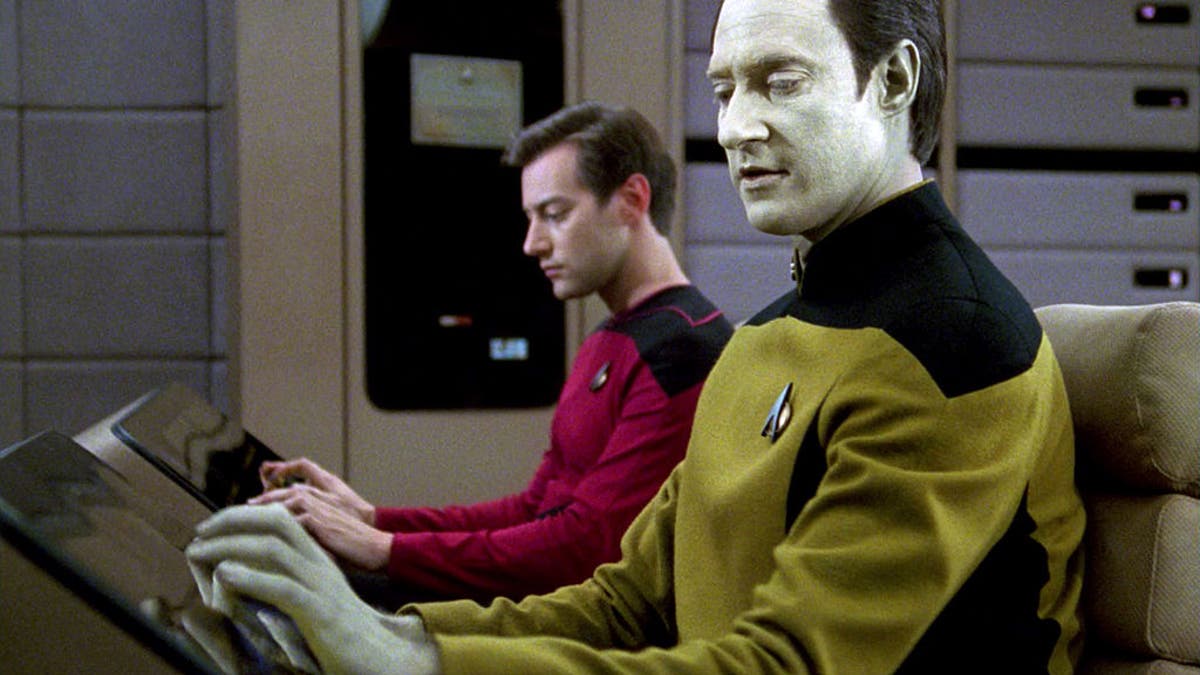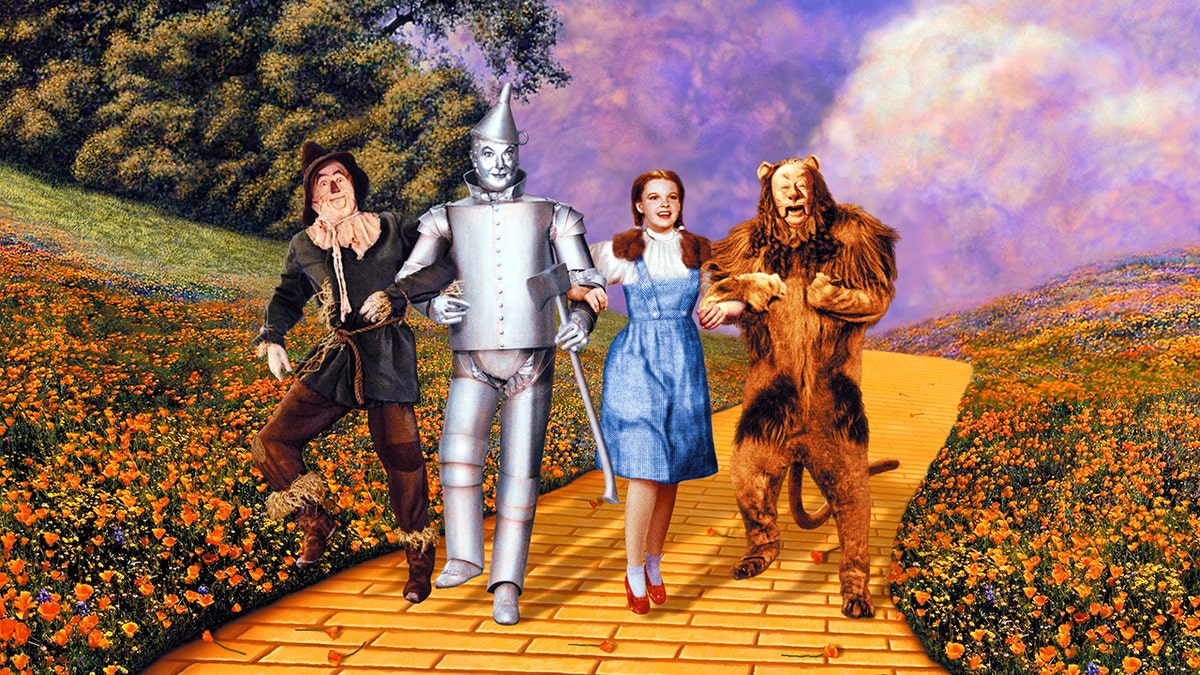Rise of AI: Wimbledon to use artificial intelligence commentary during tournament
Hall of Fame tennis coach Rick Macci weighs in on how fans will react to a computer commentator instead of a human one on ‘Fox & Friends.’
Over the past 150 years or so the predictive power of science fiction has been remarkably prescient about myriad advancements made by humanity.
Millions of Americans today walk about with a "Dick Tracy" style "wrist radio," known now as a smartwatch and spaceships and space stations dot the darkness beyond our planet. Last week the FAA even cleared the way for testing a flying car.
About time.
BIDEN ADMIN, DEMS TRYING TO MAKE AI ‘WOKE’: REPORT
Sci-fi has also missed the mark now and then. Nobody, for example, is being beamed up by a "Star Trek" style transporter, and as far as we know nobody has ever traveled in time.

Brent Spiner as the android Lt. Commander Data in the "Star Trek: The Next Generation" episode, "The Hunted." (Getty Images)
The latest tech to be ripped from the pages of Asimov and Clarke is artificial intelligence, various versions of which seem to be popping up everywhere, whether we like it or not.
Unlike relatively simple tools such as smartphones or even virtual reality goggles, AI presents a unique challenge to those of us seeking to understand it, namely, nobody can actually define what exactly it is.
Arguably the earliest iteration of a robot in English literature is an L Frank Baum character from his "Oz" series, named, get ready for it, "Tik-Tok," which made its appearance in 1907.
Baum was clear that Tik-Tok, though capable of speech, thought and action could not feel emotions, and was therefore not capable of higher human traits such as the ability to love.
This concept of a purely analytic thinking machine that expresses itself in human form would be favored by many sci-fi creators over the decades, perhaps culminating in the "Star Trek" character Commander Data whose most central plot line is his desire and quest to become more human.
But at the same time as these often-comic forms of AI were explored another more ominous form of the tech could be seen in films like "2001: A Space Odyssey" and "Blade Runner." The former warned that AI may not be controllable, the latter, that it may indeed evolve to have emotions, and even to love.
That theme is taken further in the 2013 film "Her" in which the protagonist falls in love with his virtual personal assistant, which is frankly a phenomenon that has already arrived in real life.
Scroll through Twitter, until you hit your rate limit at least, and you can find ads for AI girlfriends, who you can text with, who will send artificially generated pictures, and whose chat function is sophisticated enough to simulate real flirtation.

Actors Ray Bolger, Jack Haley, Judy Garland and Bert Lahr, all in costume as they dance along the yellow brick road in a publicity still from the film, "The Wizard of Oz." This was one movie version of the "Oz" books. (Silver Screen Collection/Getty Images)
It's amusing to imagine the stereotypical image of the user of such virtual relationship technology as the pudgy loser in his mom’s basement sexting his fake girlfriend in between posting hot edgelord takes on Reddit. But is this phenomenon really so new?
For centuries human beings have fallen in love with characters who don’t actually exist, in books and poetry the mind would paint vivid pictures, making the world of the words almost as actual as the plastic of reality.
CLICK HERE TO GET THE OPINION NEWSLETTER
For the user of a book or a ChatBot, the basic trick is exactly the same, it is a suspension of disbelief. We imbue the words and images created by lifeless machines with their meanings and emotions.
The Tik-Tok of "Oz," being of its own mechanical age, had to be wound up in order to function, but with one important caveat, he is not capable of winding himself. He can only function through human intervention.
The latest tech to be ripped from the pages of Asimov and Clarke is artificial intelligence, various versions of which seem to be popping up everywhere, whether we like it or not.
This is a good way to think about AI, as a tool, or form of entertainment that only has meaning when it is interacting with actual human beings.
CLICK HERE TO GET THE FOX NEWS APP
We should not pay too much heed to fanciful fears that super smart AI will decide to destroy humanity and take over the world, it is after all, only one of the many outcomes for thinking machines dreamed up by sci-fi long before the technology existed.
The future of AI is firmly in the grip of mankind, the challenge is to choose the next chapter carefully. When we look to the past, we find many futures to choose from, and many, if not most of them do arrive at happy endings.



